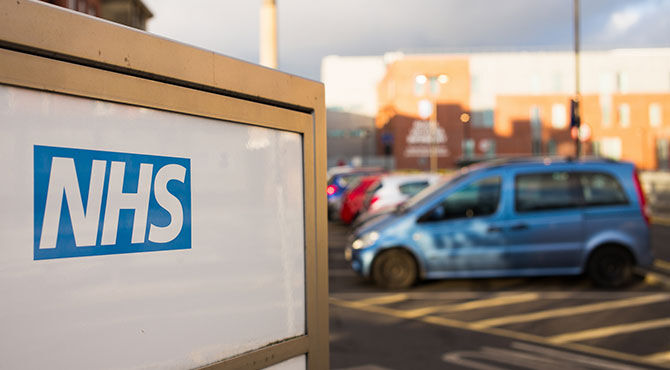Visa system for foreign doctors branded as ‘madness’
A number the UK’s leading medical associations have called for a rethink to the current Tier 2 immigration system, in response to an increasing number of doctors being blocked from entering the country.

 31 May 2018
31 May 2018Calls to improve Tier 2 immigration system
Calls for a fundamental overhaul of the Tier 2 system, which puts a yearly cap of 20,700 on the number of professionals in the ‘general skills’ category can be hired from countries outside the European Economic Area, have come recently from tech companies, manufacturers and business groups after the monthly allocation was reached for six months in a row. It has prevented more than 6,000 foreigners taking up posts in Britain.Now the British Medical Journal (BMJ), with the backing of the nation’s leading medical organisations, has launched a ‘Scrap the Cap’ campaign and initiated an online petition to parliament to demonstrate “the strength of feeling against government red tape that prevents doctors who have already secured jobs in the NHS from entering the UK”.Affects of Tier 2 restrictions
The BMJ pointed out that, between December and March, more than 1,500 doctors from overseas with job offers have been refused visas. Although nurses and some medical specialisations are on the shortage occupation list and are exempt from the cap, most doctors fall under the Tier 2 restrictions.As a result, said the BMJ, hundreds of National Health Service posts have remained unfilled “putting extra pressure on overstretched staff and threatening the care of patients”.Fiona Godlee, editor-in-chief of the BMJ, said, “There’s a sort of madness in the current restrictions. The UK has always relied on and welcomed doctors from overseas. Now, just when we most need them, we are putting roadblocks in their way and wasting precious money, time and international goodwill.”The campaign has the backing of the British Medical Association (BMA), NHS Employers and the British Association of Physicians of Indian Origin (BAPIO) as well as royal colleges representing physicians, paediatrics and child health, radiologists and pathologists.Jane Dacre, president of the Royal College of Physicians, said, “We support The BMJ’s petition for the removal of visa restrictions preventing overseas doctors from coming to work in the NHS. It’s frustrating that they are prevented from doing so when we need them to relieve the pressure on the NHS and improve patient care. The consequences are serious, pushing up waiting times and making NHS trusts spend more on temporary staff, a situation that could easily be avoided by a relaxation in the visa restrictions.”Related immigration articles:
- Migration uncertainty hampering UK exporters
- Record number of techies and engineers denied UK visas
- Warnings over Brexit “brain drain”
NHS under strain
Chaand Nagpaul, who chairs the British Medical Association council, added, “It makes no sense to turn doctors away from working here when the NHS is under huge pressure. The Tier 2 visa quota has been reached for the sixth month in a row, yet there are still thousands of posts unfilled, with vacancy rates rising.“At a time when the NHS is under enormous strain and struggling to fill positions, the current visa restrictions and arbitrary caps for non-EU workers entering the UK are inexplicable and threatening patient care and safety. Delivering a more flexible immigration system which enables NHS recruitment is an easy win for the government and will have both long term and immediate benefits for the future prosperity of the NHS.”Chandra Kanneganti, who chairs the British International Doctors’ Association, is also supporting the campaign. “The whole thing is a shambles,” he said. “At a time when the NHS is under enormous strain and is struggling to fill positions, the current arbitrary caps on non-EU doctors are inexplicable and completely unacceptable.”A Home Office spokesman said, “The government fully recognises the contribution that international professionals make to the UK and to our health service.“However, it is important that our immigration system works in the national interest, ensuring that employers look first to the UK resident labour market before recruiting from overseas.“When demand exceeds the monthly available allocation of Tier 2 (General) places, priority is given to applicants filling a shortage or PhD-level occupations.“The published shortage list, based on advice by the Migration Advisory Committee, includes a range of medical professionals and we estimate that around a third of all Tier Two places go to the NHS.”For related news and features, visit our Immigration section.Relocate’s new Global Mobility Toolkit provides free information, practical advice and support for HR, global mobility managers and global teams operating overseas. Access hundreds of global services and suppliers in our Online Directory
Access hundreds of global services and suppliers in our Online Directory
©2025 Re:locate magazine, published by Profile Locations, Spray Hill, Hastings Road, Lamberhurst, Kent TN3 8JB. All rights reserved. This publication (or any part thereof) may not be reproduced in any form without the prior written permission of Profile Locations. Profile Locations accepts no liability for the accuracy of the contents or any opinions expressed herein.






































